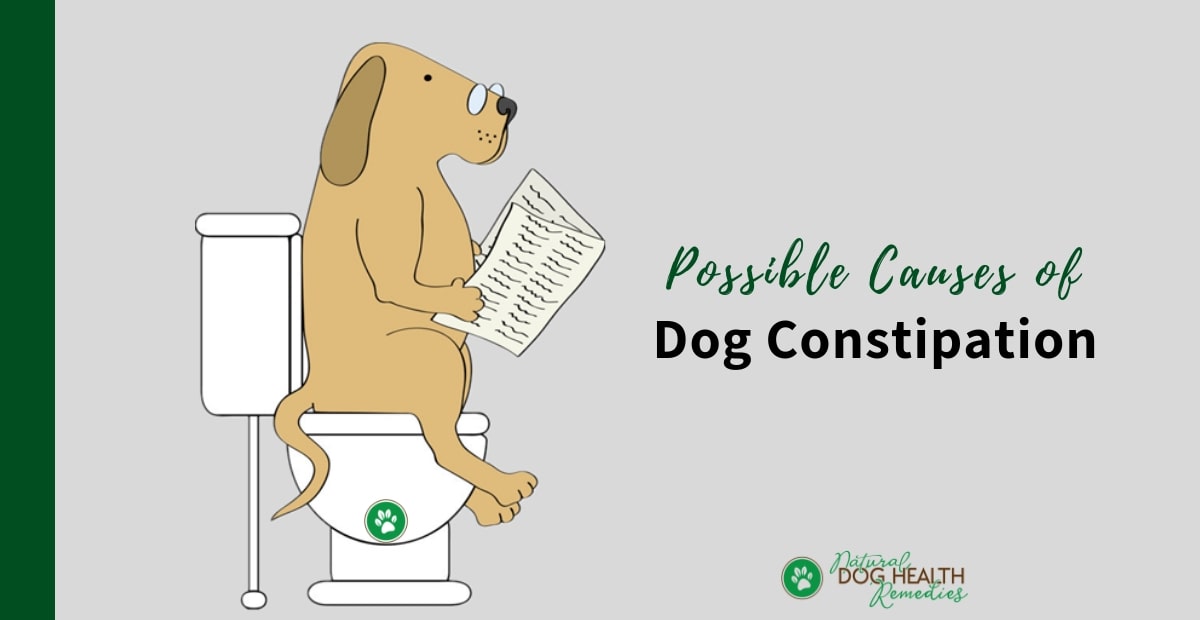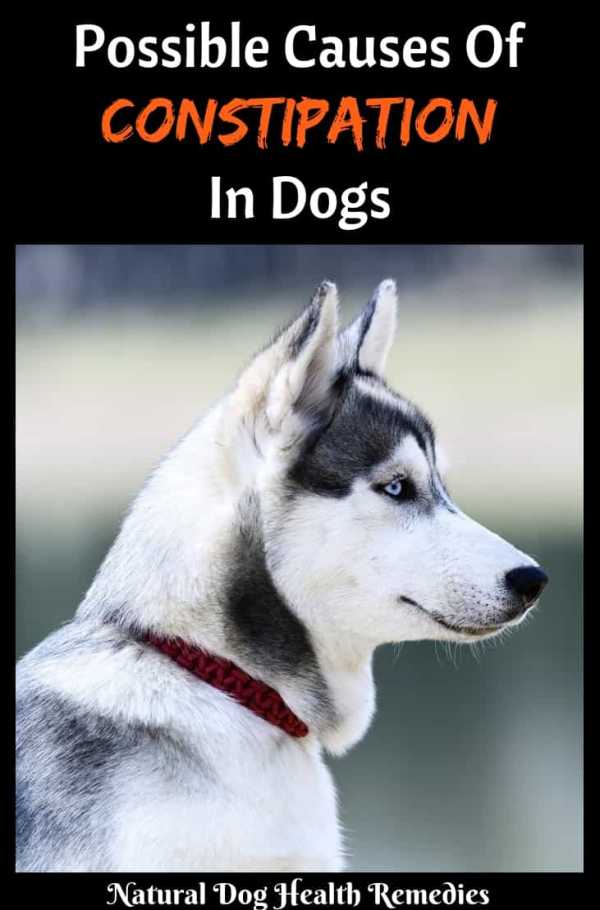Common Dog Constipation Causes

Overview
Constipation can be acute or chronic. Occasional acute constipation in dogs is nothing to be worried about and treatment can be as easy as adding fiber to their diets.
Chronic constipation is another story. It may indicate an underlying problem or disease causing the constipation.
Chronic constipation in dogs causes fecal matters to harden in the colon and can eventually lead to a full bowel impaction.
It is therefore important to make sure that our dogs poop every day.
If you notice that the time span between your dog's bowel movements is increasing, take a closer look at her lifestyle as well as her digestive health to see if you can figure out what may be the problem. Watch carefully when your dog goes outside for her daily bathroom breaks.
Prolonged Constipation Leads to Megacolon
Prolonged constipation in dogs can result in "megacolon". It is a condition in which waste is remaining in the colon, stretching and expanding the colon to the point where it becomes abnormally enlarged so that it cannot function properly.
As you can imagine, megacolon causes toxins in the waste to go back into the body. This can lead to a host of health problems, such as appetite loss, bloating, and abdominal discomfort.
Causes of Dog Constipation
Constipation in dogs can be caused by lifestyle, or it can be caused by some underlying health issue.
Lifestyle Issues Causing Dog Constipation
Here are some possible lifestyle problems that may cause constipation in dogs:
Eating Something InedibleIf your dog cannot seem to be able to poop, first find out if she has eaten anything that she is not supposed to. For example, a toy, a stick, or your sock. Some dogs also like to swallow sand and mud in the yard!
If your dog seems to swallow anything and everything, some positive training is in order. For example, when you see your dog is about to swallow something inedible, stop her with a firm "Drop!", then praise her when she drops the thing. You can also give her some chew toys to play with.
Lack of ExerciseIf you have ruled out that nothing inedible was ingested by your dog, then take a look at her lifestyle. Is your dog getting enough exercise every day?
A young healthy dog needs daily exercise of at least one hour. Take your dog for brisk walks, long runs, and hikes. When dogs are outside exercising, they tend to relieve themselves as well.
Insufficient Bathroom TimeAllow your dog to go outside several times a day to relieve herself. Some dogs tend to hold their stool when they don't have the opportunities to go to the "toilet" (wherever that may be).
If you work out of the house all day, consider hiring a dog-walker. Not only will your dog be able to go out more frequently during the day, but she can also get more exercise.
Improper DietPoor quality commercial foods and insufficient water intake will also lead to dog constipation. Make sure that fresh vegetables are included in your pet's meals and that fresh water is always available to her.
Dehydration can cause dog constipation because a lack of water in a dog's system can cause hardening of the stools. In fact, dehydration is a very common cause of dog constipation.
Pesticides and Other Toxic ChemicalsSometimes using over-the-counter flea control products, such as flea powder or flea collars, can also cause constipation in dogs.
Health Problems As Possible Causes
If you can rule out the above causes, then maybe there is a deeper underlying health problem that is causing the constipation, especially if the dog is suffering from chronic constipation.
Some health problems that can cause chronic constipation include:
Worm InfestationDogs infested with worms can develop constipation. If your dog has worms which continue to multiply in her digestive system, your dog's intestine will become choked full of foreign matter, improperly digested meals, and residue from the worms themselves. The result? Chronic constipation.
Psychological StressJust like people, a dog suffering from stress, anxiety, or depression may also develop chronic constipation.
Prostate DiseaseFor older, unneutered male dogs, constipation may be a sign of the onset of prostate disease, such as prostate enlargement, or even prostate cancer.
As you can see, there are lots of possible causes for chronic constipation in dogs. It is important, therefore, that a veterinarian be consulted if the constipated condition continues.

Dog Constipation and Anal Gland Impaction
Signs and Symptoms of Dog Constipation
 So how can you tell if your dog is suffering from constipation? One way is to watch her when she is "doing her business."
So how can you tell if your dog is suffering from constipation? One way is to watch her when she is "doing her business."
If you notice that your dog strains while having a bowel movement, then she may be constipated (although there are other health problems that can also cause a dog to strain while passing stool - that's why you should take your dog to the vet if she persistently strains while pooping.)
There are other symptoms that indicate dog constipation:
- Long periods without bowel movements
- A bloated belly
- Noticeable sensitivity in the abdominal area
- A loss of appetite
- Hard and dry stools
When to See a Vet
As mentioned above, occasional constipation is nothing to be concerned about. But if your dog is constipated for over 2 days, then it is advisable to consult your vet.
Some of the possible causes of constipation listed above are serious and potentially life-threatening. Therefore, watch your dog carefully and seek veterinary treatment if necessary.
If your dog has recurrent or chronic constipation (if he is constipated for a day or 2, gets better, and the problem occurs again later on), then it is also a good idea to seek veterinary advice.
Usually if a problem recurs, it means that there is something more serious going on that needs treatment or a change in your dog's diet and/or lifestyle.

Home Remedies for Constipated Dogs
If you and your vet can rule out any lifestyle or health issues that are causing your dog's constipation, try using some home remedies to help your dog. Visit this page for more information.
 References
References
Eldredge, et al. Dog Owner's Home Veterinary Handbook 4th edition (Wiley Publishing, 2007).
R.H. Pitcairn, The Complete Guide to Natural Health for Dogs and Cats (Rodale, 2005).





